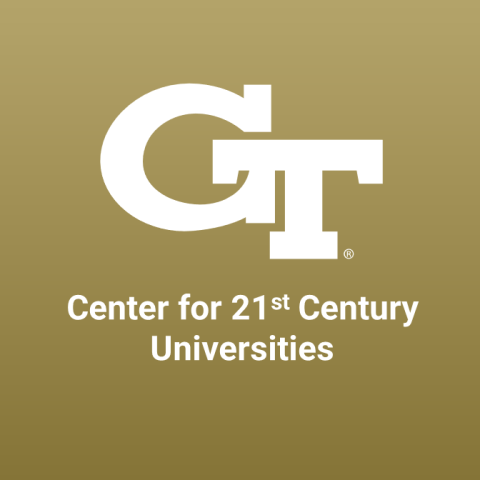
What’s next for university admissions?
With the impact of AI on applications as yet unknown and affirmative action in the US at risk, Rick Clark speculates on the future of college admissions. His hope? That the student voice finds new ways to be heard
You may also like
Popular resources
In January, I had the opportunity to answer this prompt in a Higher Ed Dive article, along with a few friends and colleagues around the US: “In 150 to 200 words, what is one admissions trend you expect to see in 2023?”
This was my take:
In the year ahead, due to the emergence and prevalence of artificial intelligence [AI] software such as ChatGPT, I expect more colleges to either drop their admission essay altogether or expand the format through which students can convey their voice and demonstrate their ability to articulate their opinions and interest.
This could take the form of proctored writing samples, graded essays from their high school, a rise in the use of unscripted interviews or various mediums and platforms for students and their supporters to submit information, ie, voice recorded recommendations or video elevator pitches.
Removing barriers to apply and simplifying the application process in general will be particularly important due to the pending Supreme Court case on affirmative action, and the desire of colleges and universities to preserve a diverse applicant pool. To that end, expect more colleges to make announcements ending legacy preferences and launching transfer pathway programs geared toward historically underrepresented students.
The first half of my response (AI, essays, broader submission mediums) elicited emails and social media messages, which fell into one of two camps: a) You are wrong; or b) I hope you are wrong. The good news for those of you who disagree is that you don’t have to look far back on the Georgia Tech Admission Blog to see my many errant prognostications.
- Collection: AI transformers like ChatGPT are here, so what next?
- Spotlight: Pathways to better university admissions
- Targeted advice and guidance is crucial for widening participation
Normally, I don’t mind being wrong, but in this case I hope I’m not. Here’s why – and here’s what I hope we will see.
Ask most admission counsellors what they’re looking for in an application essay and you will get some version of: “We just want to hear the student’s voice.” Well, let’s solve for that. The truth is that many of these essays are already overly sanitised or professionally tailored or tampered with. I hope the Common application and Coalition application will modernise their platforms and integrate technology that allows us to more directly hear and/or see students, and the adults who support them.
Allowing for voice-recorded responses, or short video clips, is the student’s voice. Yes, I understand this would mean parameters and controls, so another cottage industry does not emerge, but stick with me for a moment. Changing the medium of delivery to audio or video – or at least providing either as an option – gives a much better sense of how a student would engage in the classroom or on campus than does the essay. Importantly, if these were limited to a minute or so, it would not add time to review for colleges – and could be a welcome reprieve for the tired eyes of admission readers. (Companies such as Initial View are offering this for students.)
The same goes for school counsellors or teachers. While they could still send written recommendations, if that was their preference (and use AI at will), the truth is that most American students attend public schools where counsellor-student ratios are an utter travesty at several hundred to one. My hope is that we can make it easier for these folks by allowing them to advocate for their students in mediums they are comfortable with in 2023 (for example, voice or video). I don’t want a student’s boss from McDonald’s having to log in and submit a rec letter, but I think there would be value in hearing them say: “She’s the only person outside of my family who I allow to have the keys to the store.”
Several folks who messaged me “could not see colleges doing away with the essay”. Maybe you are right. Maybe higher ed really moves that slowly and the essays will persist in current form for a good bit longer. But AI is here, and students will be using it during their K12 and college-admission experience. As a result, I agree with the notion that ChatGPT and others will move students more to editing mode than author mode. Ultimately, if a student wants to use AI to create their prompt responses, that’s their choice.
With that said, while my prediction is that some schools will drop the conventional admission essay altogether, my hope is that Common App and Coalition for College will at least install software that screens for AI use and displays the result to students prior to submission. This will give students a chance to decide if they want to edit further or proceed, especially since colleges maintaining essays could very well run similar scans on their side post submission.
My biggest hope is the Supreme Court will not overturn decades of national precedent and will continue to allow colleges to responsibly use race as “one of many factors” to recruit students, make admission decisions, award scholarships and more. (More on why providing more data, not less, is important in holistic review from my Fisher v Texas blog).
However, my prediction is that SCOTUS will make affirmative action illegal and we will see a downturn in under-represented undergraduate student enrolments, particularly at state flagships and selective privates; the American higher education experience will be further devalued as a result. And even with the reduced percentages of black and brown students on many college campuses, we won’t see a reduction in the number of entitled, privileged people complaining about not getting into Stanford or Harvard each April.
Agree, disagree, forward or delete – I appreciate you reading. An exchange with people from various backgrounds showing up to listen, respect and learn from one another is how we add value and make progress…I just hope the Supreme Court agrees.
Rick Clark is assistant vice-provost for enrolment management and executive director for undergraduate admission at the Georgia Institute of Technology.
This is an edited version of a post, “2023 admission predictions…and hopes”, that was originally published on the Georgia Tech Admission Blog on 27 January 2023.
If you found this interesting and want advice and insight from academics and university staff delivered direct to your inbox each week, sign up for the THE Campus newsletter.





Comments (0)
or in order to add a comment